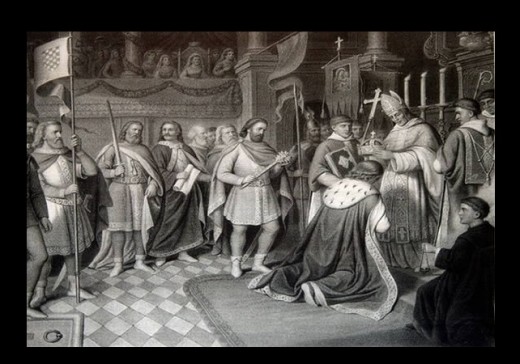Did John Calvin kill Servetus?

Calvin Killed Servetus!
This is a very popular accusation. It is levied by those who are oppsed to Reformed Theology but who are unwilling or unable to engage with the real issues. The rationale is that Calvin is a bad person and therefore no one should listen to him. Before we look at the facts, I need to point out the fallacious nature of this argument.
1) It is an ad hominin attack. The person who would say such a thing is not addressing the doctrine of Calvinism but hoping to smear the teaching by attacking the person.
2) This is a genetic fallacy. For the sake of argument let us suppose that John Calvin murdered Servetus. That would not automatically mean that all that Calvin said was not true or that the doctrines called Calvinism are not true. This is easy to illustrate with examples from the Bible.
“David and Moses were guilty of murder therefore what they wrote should not be in the Bible.”
This is not a logical statement. It does not follow that because they committed the sin of murder that God could not use them to write inspired text.
3) This is an attack designed to appeal to the emotions of the hearer. It is not a reasonable or Biblical argument but is aimed to alienate the hearer without cause or fact being given.
Who Was Michael Servetus?
Michael Servetus (circa 1511- 1553) was a Spain monk. He studied law as well as the Biblical languages. Servetus began to question the doctrine of the Trinity on the basis that the word does not appear in the Bible. He was accused of the same heresy committed by Arius, some thirteen hundred years before. In 1531, he printed his first work De trinitatis erroribus (The Errors of the Trinity), while he was in Strasbourg. Martin Bucer opposed the work of Servetus and his book was banned.
Servetus went to Basel where he printed his second work on the topic, De trinitate, in 1532. He stated his beliefs and was subsequently advised to leave Switzerland. Traveling under the name Villeneuve to avoid arrest, he went to Paris, France. Later he moved to Lyon, where he took a job as an editor and studied medicine.
In 1553, he published Christianismi restitutio (The Restoration of Christianity). His comments on the denial of the Trinity placed him in danger again. He was arrested but managed to escape. On his way to Italy, he passed through Geneva. In Geneva, He was arrested again.

Kings and Kingdoms
We must understand the historical context. It is anachronistic, to say the least, if we think the concept of personal freedom that we have today is equal to what people experience in the time of the Reformation or that there was a separation of church and state, as we know it today. As was the king, so were the people. Which is to say that if the king was Catholic then the people would be Catholic and if the king was a Protestant than the kingdom would be Protestant. It would be at least another hundred years before there was religious tolerance and yet one-hundred more before there was the idea of personal freedom in religion. The Pope could call on a king to go to war and a rejection of the state religion was also a rejection of the state and an act of treason.

Calvin and Servetus
Before Servetus came to Geneva, he and John Calvin had exchanged correspondence. Many historians believe, given the pride of Servetus and his inclination to controversy, that Servetus sought to bring down the well-known Calvin and establish himself as an authority on theology. Calvin and Servetus had many hot debates over theological issues. Servetus’ denial of the Trinity alone was enough to mark him out as a heretic by both the Roman Catholic Church and among the Protestants.
The picture painted by many anti-Calvinists is that John Calvin with mob or army breaks down the door of the humble dwelling of poor Servetus. Calvin then drags him through the street by his hair, as Servetus begs for mercy. Servetus is tied to a ready stake. Calvin twists his mustache, laughs maniacally, and lights the match. Unfortunately for these would-be dramatists, this is not what happened.
When Servetus arrived in Geneva, he was recognized and detained by the city authorities. Servetus was questioned and pressed to retract his teachings but he refused. The Churches of Zurich, Berne and Basil were consulted for their opinion on the teachings of Servetus. Calvin was also called upon as a witness to the teachings of Servetus, based upon their interactions together. Servetus was found guilty and executed by the state. Many visited Servetus in prison to compel him to retract his statements and thereby save his own life. When he refused, it was Calvin who pleaded with the Council to apply a more humane form of execution. This was refused.
Did Calvin kill Servetus? He did not. Calvin was called as one of many witnesses against Servetus. That is all.








